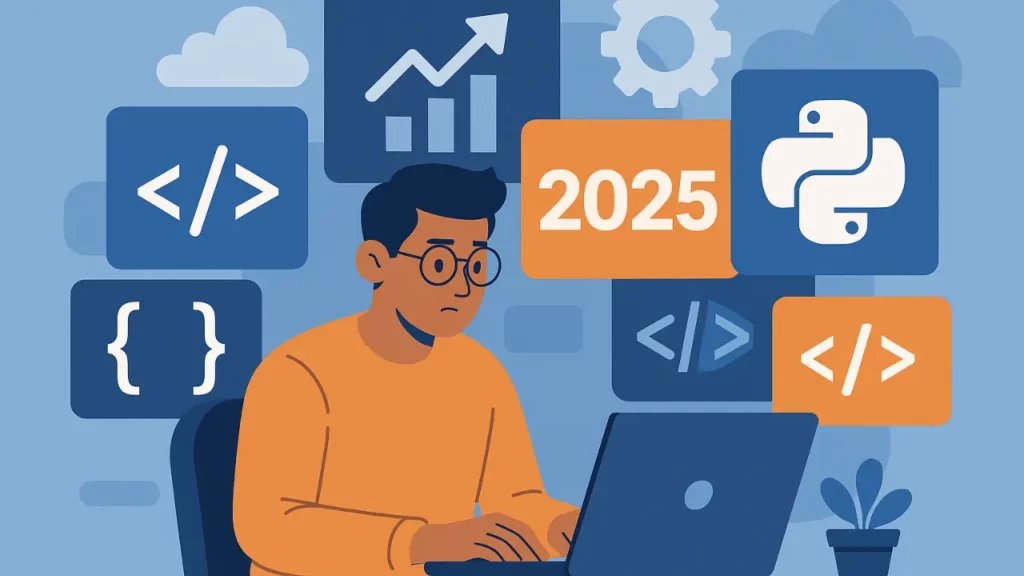Introduction: The Ground Beneath Developers Is Shifting
The tech world is changing fast. Software developers who don’t see the shift coming might soon find themselves outpaced. What once looked like a dream job—flexible hours, innovation time, remote work—is turning into a grind. Today’s developer is expected to clock in for 60-hour office weeks. The perks are vanishing, and the pressure is rising.
After 25 years in tech, I’ve seen plenty of changes. But I’ve never witnessed a shift this deep and this fast. The rules of the game are being rewritten. And if developers don’t adapt, their careers could suffer.
From Autonomy to Assembly Lines – The Fall of Developer Culture
For years, Silicon Valley sold developers a vision. Freedom, innovation, and impact. Think of Google’s 20% time. That policy gave birth to Gmail and Google Maps. Developers were treated like artists—free to explore, experiment, and create.
But now? That freedom is gone. Strict office policies are replacing flexible work. Developers are being asked to grind in offices like factory workers. Innovation has taken a backseat to deadlines. Autonomy is dead. Output is king.
What’s replacing this culture is something entirely different. A focus on control. On managing hours. On squeezing out every last drop of productivity. It’s no longer about building the future. It’s about meeting this quarter’s targets.
Why This Isn’t Just Another Cycle
Some think this is just another pendulum swing. Tech has booms and busts, right? Not quite. This time, it’s different. In the early 2000s, after the dot-com crash, companies tightened budgets and laid off staff. But they were weak. They were responding to failure.
Today, the biggest tech companies are stronger than ever. Trillion-dollar valuations. Dominant market positions. And yet, they’re the ones leading this change. That’s what makes it so different—and so dangerous.
This isn’t a reaction to a crash. It’s a power play. These companies know they hold all the cards. They no longer need to compete for talent. They’re done offering perks. They’re reshaping the workplace on their terms.
The Power Flip – From Talent Wars to Compliance Mandates
Remember when developers were in demand? When companies offered six-figure salaries, stock options, and ping pong tables to win talent? That era is over.
The power balance has flipped. Today, companies are setting strict attendance rules. They’re tracking badge swipes. They’re making it clear: you show up, or you’re out. There’s no more illusion of choice.
This change reveals a harsh truth. The perks never came from love. They came from necessity. When talent was scarce, companies had to attract and retain the best. Now, with AI rising and economic pressure mounting, they believe they can afford to be strict.
The AI & Economic Pressure Cocktail
What’s driving this shift? A few things. First, artificial intelligence. AI can now write code, run tests, and even suggest features. That doesn’t mean developers are obsolete—but it does mean they’re more replaceable.
Second, cash burn. Big tech companies spent years chasing growth. Now investors want profits. That means cutting costs. And one big cost? Developer perks.
Third, economic pressure. Inflation, market uncertainty, and interest rate hikes are forcing companies to tighten up. The result is a perfect storm. Developers are no longer the golden children. They’re becoming high-paid labor. And management wants them in the building, grinding out code.
What Developers Need to Understand Right Now
This isn’t about complaining. It’s about adapting. The tech industry is evolving, and developers must evolve too.
First, accept that the old rules are gone. No more 20% time. No more flexible work guarantees. Second, develop skills that AI can’t replace—product thinking, communication, leadership. Third, stay lean. Avoid over-specializing in roles that are easily automated.
Networking also matters more than ever. In a world where loyalty is fading, your network is your safety net. Build relationships. Help others. Stay visible.
And finally, consider entrepreneurship. The dream of building your own thing is alive—and more accessible than ever. If companies don’t value your creativity, maybe it’s time to invest in yourself.
The Death of Innovation Time – What It Symbolizes
Google’s 20% time wasn’t just a policy. It was a symbol. A promise that developers mattered. That their ideas could shape the future.
Its death tells us something critical: the illusion is over. Companies no longer pretend to value developer creativity. They value output. They want compliance.

And it’s not just Google. Across the board, companies are cracking down. Fewer hackathons. Fewer side projects. More hours, more meetings, more management.
This is a psychological shift. It redefines what it means to be a developer. Not a creator. Not a visionary. But a worker. A producer. And if you resist? There’s a line of candidates—and an AI tool—ready to replace you.
Conclusion: Adapt Fast or Fall Behind
Tech is no longer a playground for innovation. It’s a battlefield. The companies that once wooed developers are now demanding obedience. The rules have changed. And developers must adapt—or risk becoming obsolete.
This isn’t fear-mongering. It’s a reality check. Developers must evolve, upskill, and rethink their place in this ecosystem. Whether it’s building your own startup, mastering AI tools, or leading teams—adaptability is your edge.
The psychological contract between developers and companies is broken. And it won’t be repaired anytime soon. But that’s not the end of the story. It’s the beginning of a new chapter.
At StartupHakk, we believe in giving developers the tools and insights they need to thrive in this new world. Stay sharp. Stay agile. And don’t wait for change—drive it.




